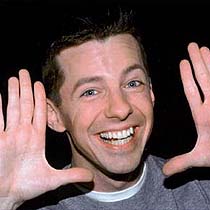For a while, I had stopped listening to mix albums. I blame this partly on the way the iPod has changed my (and countless other people's) listening habits: with the choice of selecting tracks left up to the shuffle function 30, 40, 50% of the time, it made less and less sense to upload continuous mixes to the iPod. I would, I tell myself, listen to such CDs on a good old stereo -- which would allow me to appreciate the way a good mix recontextualize certain tracks, for example -- but of course, there's never enough time. But another portion of the blame goes to the way dance music, arguably in a funk (and not the good kind), has become less and less interesting in recent years.
Of course, not all mix albums are filled with dance music, and, indeed, the first mix album in ages that I've been quite smitten with is Nouvelle Vague's Late Night Tales. You know the Late Night Tales (neé Another Late Night) series: artists or DJs curate a mix of "eclectic" music that say something about their influences, or is stuff they would play you should they bring you back home to their place after the clubs close, or something. (Not to be confused with the Back To Mine series, in which artists or DJs curate a mix of "eclectic" music that say something about their influences, or is stuff they would play you should they bring you back home to their place after the clubs close, or something.)
That Nouvelle Vague has come up with a good mix is mildly surprising. I like their two albums well enough, but it was hard to imagine that a mix from them wouldn't be as one-note as their oeuvre, let's face it, tends to be. On their Late Night Tales, there are a few predictable selections: most obviously, OS Mutantes' by now over-canonized "Baby," which contains the template for their Nouvelle's sound. But the rest of the mix is quite enchanting. Trip-hop numbers like Avril's "Urban Serenade" brush up against vaguely dark and depressive 80s tracks from the Pale Fountains, David Sylvian and This Mortal Coil, or chansons genuine (Isabelle Antena) and mock (Anja Garbarek). But most fetchingly, in between are dropped a bunch of countrypolitan or torch songs, all sung by vocalists who clearly love holding the microphones veryclose to their lips -- Glen Campbell singing "By The Time I Get To Phoenix," Shirley Horn doing a resigned "And I Love Him" (allowing the title phrase to climb instead of descend), Peggy Lee performing a halting "You're My Thrill." Which is to say: Julie London-style, and indeed, Ms. London turns up to close the set with a shiver-inducing "Lonely Girl."
And like all good compilations, this one introduces me to a lost song I've never heard before: Charlie Rich's "San Francisco Is A Lonely Town." Although Charlie is better known for his countrypolitan hits like "The Most Beautiful Girl," I think the only songs of his I'd previously encountered were, perversely, his bluesier numbers (possibly courtesy this late lamented blog). "San Francisco Is A Lonely Town" appears to be a cut from a 1970 album called The Fabulous Charlie Rich. A sort of "Midnight Train To Georgia" gone bad, the track follows a narrator and his girlfriend to San Francisco, a city she takes to but he finds unwelcoming. "Oh there were good times for a little while/But now her new friends say I cramp her style/I guess I'm only in the way now, and she don't need me hanging round": how true it rings, that two people can grow apart because of the different ways they adapt (or don't) to a new set of geographical circumstances. (It's not an accident that the tracklisting includes both this and Campbell's song about Phoenix.) The song ends with the narrator leaving -- the city, and his love with a bus ticket in case she wants to follow. He can only hope that she too will come to realize "San Francisco is a lonely town." While that, in isolation, sounds like a mean, even spiteful thing to wish on a lover, Charlie sings it with such emotion -- listen to the way his voice soars over the title line, one penultimate time at the 2:50 mark, with a mixture of rage and pain -- that it's impossible not to forgive him for hoping that she will suffer a little, if only because this and only this can bring them back together again.




